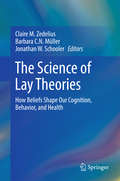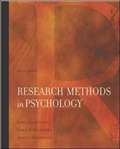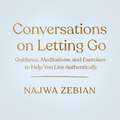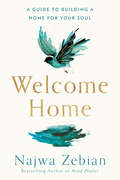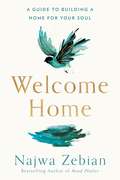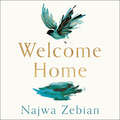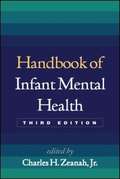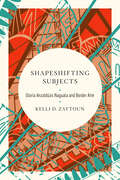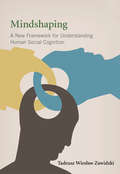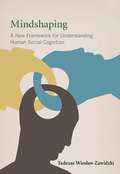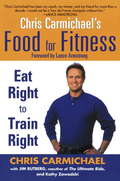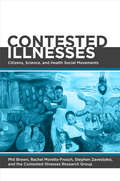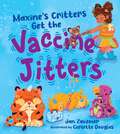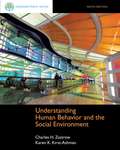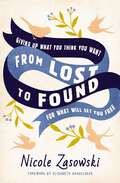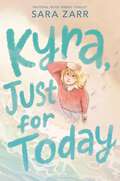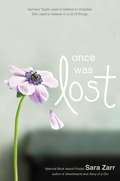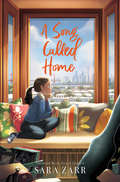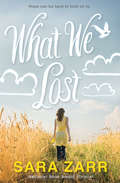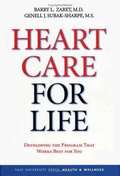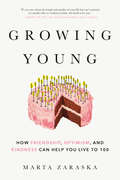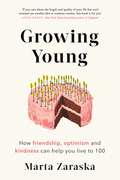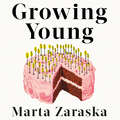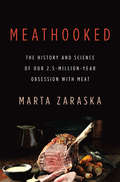- Table View
- List View
The Science of Lay Theories
by Claire M. Zedelius Barbara C. N. Müller Jonathan W. SchoolerThis timely and important collection broadens our understanding of the ways in which lay theories (also known as folk psychologies, implicit theories, na#65533;ve theories, or mindsets) impact our lives and social relations. Moving well beyond lay theories as applied to intelligence and achievement, this volume considers lay theories in an admirably wide context, including perspectives on prejudice, creativity, self-regulation, health, free will, justice, magic, religion and more. Eminent and emerging scholars alike provide a comprehensive overview that presents and synthesizes cutting edge contemporary research on lay theories, spanning social, cognitive, developmental, cultural, and clinical psychology. Structurally, this volume is organized in three parts. Beginning with a preface by renowned scholar Carol Dweck, the first part looks at the origins and nature of lay theories, and how malleable they are. The second part explores lay theories about common psychological phenomena. The third section discusses lay theories about the metaphysical or supernatural. Finally, the last section explores the important question of how lay theories impact health and health behavior. Taken together, the chapters provide an integrative survey of the science of lay theories, bringing together many perspectives that previously have been studied largely in isolation. This volume is more than the sum of its parts--perspectives from different strands of research provide insights that cut across research disciplines, making novel connections and prompting new directions for this field of study. Shedding light on how our beliefs shape all facets of our lives, The Science of Lay Theories: How Beliefs Shape Our Cognition, Behavior, and Health will appeal to researchers and practitioners in psychology, as well as philosophers, cognitive and developmental neuroscientists, religious scholars, sociologists, and anthropologists. It is very rare to say of an edited volume of scholarly chapters "I couldn't put it down!" Yet that was the case with this book. It's not just that I have worked in this field for many years, but rather, with every chapter I felt I was gaining new insights into what, deep down, people really believe and how these beliefs influence their lives--Carol Dweck, Stanford University, Palo Alto, CA, USA
Research Methods in Psychology
by Eugene B. Zechmeister John J. Shaughnessy Jeanne S. ZechmeisterConsidered one of the best undergraduate method texts in the field for the past two decades, Research Methods in Psychology captures the excitement of psychological inquiry as well as the importance of understanding the methodology that is used to conduct research. The text has been praised for its clear writing, logical organization, depth of coverage, and wide variety of examples from different fields of psychology. The new edition includes updated research, a thoroughly revised introductory chapter, and improved pedagogical features designed to enhance students' learning.
Conversations On Letting Go: Guidance, Meditations, and Exercises to Help You Live Authentically
by Najwa ZebianNajwa Zebian, EdD, has been grappling with the concept of letting go for years, both in her own journey and in her interactions with community members, students, and friends. More and more, Najwa has observed that while our problems are personal, the themes surrounding them are universal. She concluded that letting go is a topic that deserves specific attention and consideration.Wanting a tool that is practical for as many people as possible, Najwa used her considerable platform to solicit questions from longtime followers. After reviewing the hundreds of submissions, five categories emerged as areas that are challenging and frustrating for many in their journey to grow and become better people: Infidelity, Toxic Relationships, Injustices, External Perceptions, and Internal Perception.Conversations on Letting Go is an original audio experience that guides listeners through authentically letting go and the path to forgiveness, with a combination of prescriptive advice and practical tools. These conversations go into the root of the pain, not just what it looks like on the surface.Each of the five themes are introduced by a selection of follower-submitted questions which Najwa then breaks down and addresses in some of her most intimate and personal work to date. The advice and teachings will be followed by theme-specific Reflections, Guided Exercises, and Affirmations that listeners can return to as their journey to healing continues.(P)2023 Penguin Random House Audio Limited
Welcome Home: A Guide to Building a Home for Your Soul
by Najwa ZebianFrom the celebrated poet, speaker, and educator comes a powerful blueprint for healing by building a home within yourself.In her debut book of inspiration, poet Najwa Zebian shares her revolutionary concept of home—the place of safety where you can embrace your vulnerability and discover your self-worth. It&’s the place where your soul feels like it belongs, where you are loved for who you are. Too many of us build our homes in other people in the hope that they will deem us worthy of being welcomed inside, and then we feel abandoned and empty when those people leave. Building your home inside yourself—and never experiencing inner homelessness again—begins here. In Welcome Home, Zebian shares her personal story for the first time, powerfully weaving memoir, poetry, and deeply resonant teachings into her storytelling, from leaving Lebanon at sixteen, to coming of age as a young Muslim woman in Canada, to building a new identity for herself as she learned to speak her truth. After the profound alienations she experienced, she learned to build a stable foundation inside herself, an identity independent of cultural expectations and the influence of others. The powerful metaphor of home provides a structure for personal transformation as she shows you how to construct the following rooms: Self-Love, Forgiveness, Compassion, Clarity, Surrender, and The Dream Garden. With practical tools and prompts for self-understanding, she shows you how to build each room in your house, which form a firm basis for your self-worth, sense of belonging, and happiness. Written with her trademark power, candor, and warmth, Welcome Home is an answer to the pain we all experience when we don&’t feel at peace with ourselves. Every human deserves their own home. Welcome Home provides the life-changing tools for building that inner space of healing and solace.
Welcome Home: A Guide to Building a Home For Your Soul
by Najwa ZebianFrom the celebrated poet, speaker, and educator comes a powerful blueprint for healing by building a home within yourself.In her debut book of inspiration, poet Najwa Zebian shares her revolutionary concept of home - the place of safety where you can embrace your vulnerability and discover your self-worth. It's the place where your soul feels like it belongs, where you are loved for who you are. Building your home inside yourself - and never experiencing inner homelessness again - begins here. In Welcome Home, Zebian shares her story for the first time, powerfully weaving memoir, poetry and deeply resonant teachings into her storytelling, from leaving Lebanon at sixteen, to coming of age as a young Muslim woman in Canada, to building a new identity for herself as she learned to speak her truth. After the profound alienations she experienced, she learned to build a stable foundation inside herself, an identity independent of cultural expectations and the influence of others. With practical tools and prompts for self-understanding, she shows you how to build each room in your house, which form a firm basis for your self-worth, sense of belonging and happiness.Welcome Home provides the life-changing tools for building that inner space of healing and solace.
Welcome Home: A Guide to Building a Home For Your Soul
by Najwa ZebianFrom the celebrated poet, speaker, and educator comes a powerful blueprint for healing by building a home within yourself.In her debut audiobook of inspiration, poet Najwa Zebian shares her revolutionary concept of home - the place of safety where you can embrace your vulnerability and discover your self-worth. It's the place where your soul feels like it belongs, where you are loved for who you are. Building your home inside yourself - and never experiencing inner homelessness again - begins here. In Welcome Home, Zebian shares her story for the first time, powerfully weaving memoir, poetry and deeply resonant teachings into her storytelling, from leaving Lebanon at sixteen, to coming of age as a young Muslim woman in Canada, to building a new identity for herself as she learned to speak her truth. After the profound alienations she experienced, she learned to build a stable foundation inside herself, an identity independent of cultural expectations and the influence of others. With practical tools and prompts for self-understanding, she shows you how to build each room in your house, which form a firm basis for your self-worth, sense of belonging and happiness.Welcome Home provides the life-changing tools for building that inner space of healing and solace.(P) 2021 Penguin Random House Audio
Handbook of Infant Mental Health
by Charles H. ZeanahWidely regarded as the standard reference in the field, this state-of-the-art Handbook offers a comprehensive analysis of developmental, clinical, and social aspects of mental health from birth to the preschool years. Leading authorities explore models of development; biological, family, and sociocultural risk and protective factors; and frequently encountered disorders and disabilities. Evidence-based approaches to assessment and treatment are presented, with an emphasis on ways to support strong parent-child relationships. The volume reviews the well-documented benefits of early intervention and prevention and describes applications in mental health, primary care, childcare, and child welfare settings. The chapter on psychopharmacology has been updated for the paperback edition.
Dr. Z on Scoring: How to Pick Up, Seduce, and Hook Up with Hot Women
by Victoria ZdrokFor the first time ever, a book on how to pick up hot women by a hot woman! Penthouse columnist Dr. Z shows you how it's done. You're at a party, or just a coffee shop, when suddenly -- there she is. Across the room is the hottest woman you've ever seen, one who makes your palms sweat and your breath come faster. She's amazing, a real knockout. But you're just an average guy, with average looks and an average job. What chance would you ever have of scoring with a babe like that? In Dr. Z on Scoring, Dr. Victoria Zdrok shows you that it's possible to not only pick up your hottie but also charm and seduce her. A stunner herself, Victoria has the distinction of being the only woman who has been both a Playboy centerfold and a Penthouse Pet of the Year, and with a JD in law and a PhD in clinical psychology, she has both beauty and brains. She uses her personal and professional knowledge of how beautiful women think to give you the information you need to: Approach a hot womanEngage her in conversationAsk her out and entertain herGet her into bed and please her With research from psychology experts and insights from hot models who have posed in the pages of Playboy and Penthouse, you'll learn that beautiful women really do appreciate guys for more than just their looks or money. With the information in Dr. Z on Scoring, you can make your move on the woman of your dreams!
Shapeshifting Subjects: Gloria Anzaldua's Naguala and Border Arte (Transformations: Womanist studies)
by Kelli D. ZaytounKelli D. Zaytoun draws on Gloria Anzaldúa's thought to present a radically inclusive and expansive approach to selfhood, creativity, scholarship, healing, coalition-building, and activism. Zaytoun focuses on Anzaldúa's naguala/ shapeshifter, a concept of nagualismo. This groundbreaking theory of subjectivity details a dynamic relationship between “inner work” and "public acts" that strengthens individuals' roles in social and transformative justice work. Zaytoun's detailed emphasis on la naguala, and Nahua metaphysics specifically, brings much needed attention to Anzaldúa's long-overlooked contribution to the study of subjectivity. The result is a women and queer of color, feminist-focused work aimed at scholars in many disciplines and intended to overcome barriers separating the academy from everyday life and community. An original and moving analysis, Shapeshifting Subjects draws on unpublished archival material to apply Anzaldúa's ideas to new areas of thought and action.
Mindshaping: A New Framework for Understanding Human Social Cognition
by Tadeusz Wieslaw ZawidzkiA proposal that human social cognition would not have evolved without mechanisms and practices that shape minds in ways that make them easier to interpret. In this novel account of distinctively human social cognition, Tadeusz Zawidzki argues that the key distinction between human and nonhuman social cognition consists in our complex, diverse, and flexible capacities to shape each other's minds in ways that make them easier to interpret. Zawidzki proposes that such "mindshaping"—which takes the form of capacities and practices such as sophisticated imitation, pedagogy, conformity to norms, and narrative self-constitution—is the most important component of human social cognition. Without it, he argues, none of the other components of what he terms the "human sociocognitive syndrome," including sophisticated language, cooperation, and sophisticated "mindreading," would be possible. Challenging the dominant view that sophisticated mindreading—especially propositional attitude attribution—is the key evolutionary innovation behind distinctively human social cognition, Zawidzki contends that the capacity to attribute such mental states depends on the evolution of mindshaping practices. Propositional attitude attribution, he argues, is likely to be unreliable unless most of us are shaped to have similar kinds of propositional attitudes in similar circumstances. Motivations to mindshape, selected to make sophisticated cooperation possible, combine with low-level mindreading abilities that we share with nonhuman species to make it easier for humans to interpret and anticipate each other's behavior. Eventually, this led, in human prehistory, to the capacity to attribute full-blown propositional attitudes accurately—a capacity that is parasitic, in phylogeny and today, on prior capacities to shape minds.Bringing together findings from developmental psychology, comparative psychology, evolutionary psychology, and philosophy of psychology, Zawidzki offers a strikingly original framework for understanding human social cognition.
Mindshaping
by Tadeusz Wieslaw ZawidzkiIn this novel account of distinctively human social cognition, Tadeusz Zawidzkiargues that the key distinction between human and nonhuman social cognition consists in our complex,diverse, and flexible capacities to shape each other's minds in ways that make them easier to interpret. Zawidzki proposes that such "mindshaping" -- which takes the form of capacities and practices such as sophisticated imitation, pedagogy, conformity to norms, and narrative self-constitution -- is the most important component of human social cognition. Without it, heargues, none of the other components of what he terms the "human sociocognitive syndrome," including sophisticated language, cooperation, and sophisticated "mind reading," would be possible. Challenging the dominant view that sophisticated mind reading -- especially propositional attitude attribution -- is the key evolutionary innovation behind distinctively human social cognition, Zawidzki contends that the capacity to attribute such mental states depends on the evolution of mindshaping practices. Propositional attitude attribution, he argues, is likely to be unreliable unless most of us are shaped to have similar kinds of propositional attitudes in similar circumstances. Motivations to mindshape, selected to make sophisticated cooperation possible,combine with low-level mind reading abilities that we share with nonhuman species to make it easier for humans to interpret and anticipate each other's behavior. Eventually, this led, in human prehistory, to the capacity to attribute full-blown propositional attitudes accurately -- a capacity that is parasitic, in phylogeny and today, on prior capacities to shape minds. Bringing together findings from developmental psychology, comparative psychology, evolutionary psychology, and philosophy of psychology, Zawidzki offers a strikingly original framework for understanding human social cognition.
Chris Carmichael's Food for Fitness
by Kathy Zawadzki Chris Carmichael Jim RutbergThe coach of one of the world's greatest athletes-Lance Armstrong-outlines his incredible nutritional program, which will help anyone take his or her fitness to the next level of peak performance. <P> Chris Carmichael's Food for Fitness provides the nutritional information any active man or woman needs to achieve his or her health and training goals. Along the way, Carmichael outlines his revolutionary eating program for everyone-from weekend warriors to those just trying to lose a few pounds and be more fit. <P> Most diets focus on treating a problem, pitting nutrient against nutrient in a battle over what can be eaten. Active men and women need to think of food as fuel that enables them to achieve their goals. In this context, all nutrients play integral roles and the emphasis is on consuming the right foods, in the right proportions and at the right times, to yield the energy we need to perform at an optimal level. <P> Chris Carmichael's Food for Fitness includes: <P> * step-by-step methods for matching your eating to your activity level;<P> * menu plans for home-cooked meals, restaurant dining, and on-the-go snacks;<P> * exercise plans that lead to improved fitness<P>
Contested Illnesses
by Stephen Zavestoski Phil Brown Rachel Morello-FroschThe politics and science of health and disease remain contested terrain among scientists, health practitioners, policy makers, industry, communities, and the public. Stakeholders in disputes about illnesses or conditions disagree over their fundamental causes as well as how they should be treated and prevented. This thought-provoking book crosses disciplinary boundaries by engaging with both public health policy and social science, asserting that science, activism, and policy are not separate issues and showing how the contribution of environmental factors in disease is often overlooked.
Maxine's Critters Get the Vaccine Jitters: A Cheerful And Encouraging Story To Soothe Kids' Covid Vaccine Fears
by Jan ZauzmerA shot can be a little frightening—but it’s quick, as quick as lightning! When Maxine tells her pets, “Let’s get to the vet!” Scott does not want a shot. Jervis is nervous, Franky is cranky, Biffy is iffy, and Cary is wary. Can Maxine help her critters get over their jitters . . . ? Perfect for any child afraid of shots or needles, this rhyming book in free meter is a “must-read-aloud”! Spunky Maxine takes charge of her vaccine fears with a playful game of pretend: Her adorable stuffed animals are the patients, and Dad steps in as the “vet.” Just in time for the kids’ covid vaccine—and relevant to any pediatric shot—Maxine’s Critters Get the Vaccine Jitters will delight children ages 5 and under who face this understandable fear. No need to be grouchy about this little ouchy!
Understanding Human Behavior and the Social Environment (Ninth Edition)
by Charles Zastrow Karen K. Kirst-AshmanZastrow and Kirst-Ashman's UNDERSTANDING HUMAN BEHAVIOR AND THE SOCIAL ENVIRONMENT looks at lifespan through the lens of social work theory and practice, covering human development and behavior theories within the context of family, organizational, and community systems. Using a chronological lifespan approach, the book presents separate chapters on biological, psychological, and social impacts at the different lifespan stages with an emphasis on strengths and empowerment. As part of the Brooks/Cole Empowerment Series, this edition is completely up to date and thoroughly integrates the core competencies and recommended practice behaviors outlined in the 2008 Educational Policy and Accreditation Standards (EPAS) set by the Council on Social Work Education (CSWE).
From Lost to Found: Giving Up What You Think You Want for What Will Set You Free
by Nicole ZasowskiBeing Lost is the First Step to Getting Found As a marriage and family therapist, one of Nicole Zasowski&’s greatest joys is helping her clients grow in emotional freedom. What she couldn&’t see for many years is that she was living her own life outside of that freedom, clinging to behaviors like shame, performance, and control in order to feel valued and safe.It was only when she was confronted with her own devastating pain and loss that Nicole realized her current way of life was failing her. She then discovered that sometimes God&’s rescue looks like prying our fingers off what we think we want so that we can receive what we truly need. And often, on the far side of pain we don&’t prefer, we find transformation we would not trade. In From Lost to Found, Nicole shares her story as she helps usname what we fear losing most,identify how our reactive behaviors are failing us,discover what joy we can find in letting go, andmove forward in the freedom God has for us.God is writing a story of redemption in your life too. Find out for yourself that sometimes the greatest joy is found when we are drained of all misplaced hope and shallow identities. In the midst of pain or transition, discover a surprising path to healing as you lose your grip on comfort and control—and fall right into God&’s transformative grace.Includes discussion questions for individual reflection or small group study
Kyra, Just for Today
by Sara ZarrFrom award-winning author Sara Zarr comes a gorgeously crafted and deeply personal story about a young girl, her alcoholic mother, and the hope that ties them together.Krya has always felt like she’s a bit too much. Too tall. Too loud. Too earnest. But she’s okay with that, because she’s got her mom. Ever since Mom got sober about five years ago, she and Kyra have always been there for each other—something Kyra is thankful for every week when she attends her group meetings with other kids of alcoholics. When Mom is managing her cleaning business and Kyra is taking care of things at home, maybe, she thinks, she’s not too much. Maybe, she’s just enough.Then seventh grade starts, and everything Kyra used to be able to count on feels unsure. Kyra’s best friend, Lu, is hanging out with eighth graders, and Mom is unusually distant. When Mom starts missing work, sleeping in, and forgetting things, Kyra doesn’t dare say “relapse." But soon not saying that word means not saying anything at all—to Lu or to her support group. And when Kyra suspects that her worst fears might be real, she starts to question whether being just enough is not enough at all.With sensitivity and candor, acclaimed author Sara Zarr tells a heartfelt, personal story about finding hope in even the most difficult places, and love in even the most complicated relationships.
Once was Lost
by Sara ZarrSamara Taylor used to believe in miracles. She used to believe in a lot of things. When your father's a pastor, it's hard not to buy in to the idea of the perfect family, a loving God, and amazing grace. But lately, Sam has a lot of reasons to doubt. Her mother lands in rehab after a DUI and her father seems more interested in his congregation than his family. When a young girl in her small town is kidnapped, the local tragedy overlaps with Sam's personal one, and the already worn thread of faith holding her together begins to unravel. In her third novel, acclaimed author Sara Zarr examines the coexistence of affliction and hope, and what happens when everything you thought you believed--about God, your family, and yourself--is transformed.
A Song Called Home
by Sara ZarrFrom award-winning author Sara Zarr comes a story of the small moments that show us who we are, and how family is not just something you’re part of, but something you make.Lou and her family don’t have much, but for Lou it's enough. Mom. Her sister, Casey. Their apartment in the city. Her best friend, Beth. It would be better if Dad could stop drinking and be there for her and Casey, and if they didn't have to worry about money all the time. But Lou doesn’t need better—she only needs enough.What’s enough for Lou, however, is not enough for Mom. Steve, Mom's boyfriend, isn’t a bad guy, he's just…not what Lou is used to. And now, he and Mom are getting married, and that means moving. Packing up life as they’ve known it and storing it in Steve’s garage. Lou will be separated from everything in her small but predictable life, farther from Dad than ever.Their last night in the city, Lou receives a mysterious birthday gift: A guitar, left for her by their front door. There’s nothing saying who left it, but it must be from Dad. And as she leaves the only place she’s ever known, she starts to believe that if she can learn how to play it, maybe she can bring a piece of him, and of her old life, home.
What We Lost
by Sara ZarrHope can be hard to hold on to.When thirteen-year-old Jody goes missing, the national spotlight turns to Samara Taylor's small town of Pineview. With few clues for investigators to follow, everyone is a suspect, including Jody's older brother, Nick. But even as the town rallies in solidarity, Sam feels more alone than ever. Her mother is drifting farther and farther away while her father grows increasingly preoccupied as he steps in to help Jody's family in the wake of the disappearance. During the tense, uncomfortable days that follow, Sam draws closer to Nick as the local tragedy intersects with her personal one.National Book Award finalist Sara Zarr delivers a powerful novel (originally published under the title Once Was Lost) about community, family, faith, and one girl's realization that sometimes you have to lose everything to find what's been missing all along.
Heart Care for Life: Developing The Program That Works Best for You
by Barry L. Zaret Genell Subak-SharpeMore than 70 million Americans have some form of heart disease. For each of them, obtaining accurate information about the disease and the many options for dealing with it can be both empowering and life saving. In this book, cardiologist Dr. Barry L. Zaret and Genell Subak-Sharpe offer up-to-date facts about the best treatments available and an innovative approach that shows how treatment programs can be tailored to meet the needs of each unique patient. There are no short-term fixes and no one-size-fitsall programs, explain Zaret and Subak-Sharpe. Although certain characteristics are common to each form of heart disease and its treatments,these constants must be tempered against individual variables. The authors outline the constants for the full range of cardiovascular conditions, from angina and heart attacks to high blood pressure and cardiac arrhythmias. They then guide readers through the process of assessing personal variables to develop an individual treatment and life-style program. Written in a warmly reassuring style, this indispensable guide to heart care offers realistic hope and specific directions for designing a lifelong heart care program. Filled with practical advice, instructional case histories, a philosophy for controlling your health, self-tests to assess risk, and questions to ask your doctor, it looks toward an even better future for those with heart disease.
Growing Young: How Friendship, Optimism, and Kindness Can Help You Live to 100
by Marta ZaraskaA smart, research-driven case for why optimism, kindness, and strong social networks will help us live to 100.From the day her daughter was born, science journalist Marta Zaraska fretted about what she and her family were eating. She fasted, considered adopting the keto diet, and ran a half-marathon. She bought goji berries and chia seeds and ate organic food. But then her research brought her to read countless scientific papers and to interview dozens of experts in various fields of study, including molecular biochemistry, epidemiology and neuroscience. What Marta discovered shattered her long-held beliefs about aging and longevity. A strong support network of family and friends, she learned, lowers mortality risk by about 45 percent, while exercise only lowers it by about 23 percent. Volunteering your free time lowers it by 22 percent or so, while certain health fads like turmeric haven't been shown to help at all. These revelations led Marta Zaraska to a simple conclusion: In addition to healthy nutrition and physical activity, deepening friendships, practicing empathy and contemplating your purpose in life can improve your lifespan. Through eleven chapters that take her around the world, from catching wild mice in the woods of central England to flower arranging with octogenarians in Japan, from laboratories to "hugging centres," Marta embarks on an absorbing, entertaining and insightful journey to determine the habits that will have the greatest impact on our longevity. Deeply researched and expertly reported, Growing Young will dramatically change the way you seek a longer, happier life.
Growing Young: How Friendship, Optimism and Kindness Can Help You Live to 100
by Marta Zaraska'If you care about the length and quality of your life but can't stomach yet another diet or workout routine, this book is for you' - Adam Grant, New York Times bestselling author 'Finally, a lifestyle book that transcends diet and exercise for solutions for living longer' - Dan Buettner, National Geographic Fellow and New York Times bestselling author A smart, research-driven case for why optimism, kindness and strong social networks will help us live to 100.What to do to live long? From fountain-searching Ponce de Leon to pill-popping Silicon Valley techies humanity has been trying to pinpoint the answer for centuries, often fixating on all the wrong things: miracle diets, miracle foods, miracle supplements. We skip gluten and invest in exercise gadgets. We swallow vitamins. We obsess about BMI. While healthy nutrition and physical activity are indeed important for health, there are things we all too often sacrifice in favour of fad diets that have an outsize impact on our centenarian potential. Friendships. Purpose in life. Empathy. Kindness. Science shows that these 'soft' health drivers are often more powerful than diet and exercise.Consider the numbers: studies show that building a strong support network of family and friends lowers mortality risk by about 45 per cent. Exercise, on the other hand, can lower that risk by 23 to 33 per cent. Eating six servings of fruit and veg per day can cut the danger of dying early by 26 per cent, while following the Mediterranean diet by 21 per cent. For volunteering, it's 22 to 44 per cent. Many more examples like this led Marta Zaraska to her ultimate conclusion: you should be contemplating your purpose in life, not the best fitness tracker to buy.Humans are social animals. Over the course of our evolution we've developed intertwined systems that regulate our social lives on one hand and our physiology on the other, contributing to our centenarian potential. The amygdala and the insula in the brain, the social hormones oxytocin and serotonin, the vagus nerve, the HPA stress axis - these all link our bodies and our minds, contributing to our centenarian potential. We feel safe when we are surrounded by friendly others. The nervous system, the gastrointestinal system, the immune system all function properly when the tribe is there for us and when we are there for the tribe. We flourish as part of a group.Marta Zaraska based Growing Young on hundreds of research papers and on interviews with dozens of leading scientists from fields as diverse as molecular biochemistry, cyber psychology, marketing and zoology. The book's research took her to rather unexpected places, too: catching wild mice in the woods of England, sipping super-smoothies at a longevity bootcamp in Portugal and arranging flowers with octogenarians in Japan. In the end, all the studies, the interviews and the travels brought her to a simple conclusion: self-improvement, commitment to growing as a person, can also help us grow younger. To Michael Pollan's famous statement on health: 'Eat food, not too much, mostly plants,' she now adds: 'Be social, care for others, enjoy life.'
Growing Young: How Friendship, Optimism and Kindness Can Help You Live to 100
by Marta Zaraska'If you care about the length and quality of your life but can't stomach yet another diet or workout routine, this book is for you' - Adam Grant, New York Times bestselling author 'Finally, a lifestyle book that transcends diet and exercise for solutions for living longer' - Dan Buettner, National Geographic Fellow and New York Times bestselling author A smart, research-driven case for why optimism, kindness and strong social networks will help us live to 100.What to do to live long? From fountain-searching Ponce de Leon to pill-popping Silicon Valley techies humanity has been trying to pinpoint the answer for centuries, often fixating on all the wrong things: miracle diets, miracle foods, miracle supplements. We skip gluten and invest in exercise gadgets. We swallow vitamins. We obsess about BMI. While healthy nutrition and physical activity are indeed important for health, there are things we all too often sacrifice in favour of fad diets that have an outsize impact on our centenarian potential. Friendships. Purpose in life. Empathy. Kindness. Science shows that these 'soft' health drivers are often more powerful than diet and exercise.Consider the numbers: studies show that building a strong support network of family and friends lowers mortality risk by about 45 per cent. Exercise, on the other hand, can lower that risk by 23 to 33 per cent. Eating six servings of fruit and veg per day can cut the danger of dying early by 26 per cent, while following the Mediterranean diet by 21 per cent. For volunteering, it's 22 to 44 per cent. Many more examples like this led Marta Zaraska to her ultimate conclusion: you should be contemplating your purpose in life, not the best fitness tracker to buy.Humans are social animals. Over the course of our evolution we've developed intertwined systems that regulate our social lives on one hand and our physiology on the other, contributing to our centenarian potential. The amygdala and the insula in the brain, the social hormones oxytocin and serotonin, the vagus nerve, the HPA stress axis - these all link our bodies and our minds, contributing to our centenarian potential. We feel safe when we are surrounded by friendly others. The nervous system, the gastrointestinal system, the immune system all function properly when the tribe is there for us and when we are there for the tribe. We flourish as part of a group.Marta Zaraska based Growing Young on hundreds of research papers and on interviews with dozens of leading scientists from fields as diverse as molecular biochemistry, cyber psychology, marketing and zoology. The book's research took her to rather unexpected places, too: catching wild mice in the woods of England, sipping super-smoothies at a longevity bootcamp in Portugal and arranging flowers with octogenarians in Japan. In the end, all the studies, the interviews and the travels brought her to a simple conclusion: self-improvement, commitment to growing as a person, can also help us grow younger. To Michael Pollan's famous statement on health: 'Eat food, not too much, mostly plants,' she now adds: 'Be social, care for others, enjoy life.'
Meathooked: The History and Science of Our 2.5-Million-Year Obsession with Meat
by Marta ZaraskaA few years ago, Marta Zaraska’s mother decided to go vegetarian after stumbling upon an article on the health risks of eating meat. Her resolve lasted about a fortnight before the juicy hams and the creamy pâtés began creeping back into her refrigerator. Prodded to explain her lapse, she replied, "I like meat, I eat it, end of story. ” Many of us have had a similar experience. What makes us crave animal protein, and what makes it so hard to give up? And if all the studies are correct, and consuming meat is truly unhealthy for us, why didn’t evolution turn us all into vegetarians in the first place? In Meathooked, Zaraska explores what she calls the "meat puzzle”: our love of meat, despite its harmful effects. Scientific journals overflow with reports of red meat raising the risk of certain cancers; each hamburger contributes as much to global warming as does driving a car 320 miles; and the horrors of industrial meat production are now well-known. None of these facts have prompted us to give up our hamburgers and steaks. On the contrary, meat consumption has only increased over the past decades. Taking the reader to India’s unusual steakhouses, animal sacrifices at temples in Benin, and labs in Pennsylvania where meat is being grown in petri dishes, Zaraska examines the history and future of meat and meat-eating, showing that while our increasing consumption of meat can be attributed in part to the power of the meat industry and the policies of our governments, the main "hooks” that keep us addicted to meat are much older: genes and culture. An original and thought-provoking exploration of carnivorousness, Meathooked explains one of the most enduring features of human civilization--and why meat-eating will continue to shape our bodies and our world into the foreseeable future.
